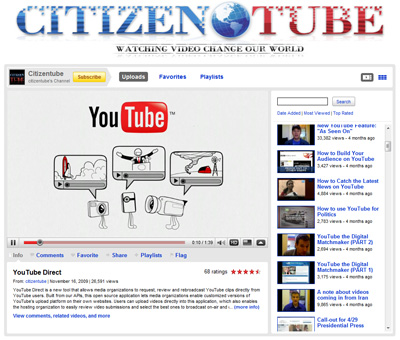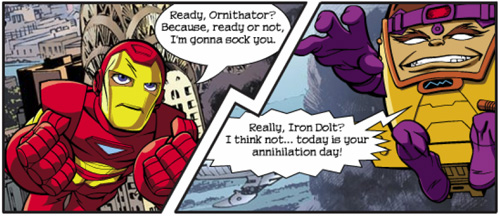 It’s hit me what I really can’t stand about the new Apple iPad. It’s been mentioned by most of the reviews of this new tablet device, but I don’t think people are really getting the scope of what Apple is up to. The iPad, like the iPhone and iPod Touch before it, does not support Flash. You know, Flash, perhaps the single greatest technical innovation on the Web since the invention of the Web itself. Flash is what brought us nearly universal moving images on the Internet. Flash brought us YouTube. Flash has created almost every single good game you have ever played in your browser. Flash is responsible for the greatest explosion of animation talent in the history of the art form. There is not another single piece of browser software that has brought so much to the web browsing experience as the little Flash player that’s installed on nearly every computer on the planet. Here’s a blog entry by one of the Adobe Photoshop developers that explains why Flash is so great.
It’s hit me what I really can’t stand about the new Apple iPad. It’s been mentioned by most of the reviews of this new tablet device, but I don’t think people are really getting the scope of what Apple is up to. The iPad, like the iPhone and iPod Touch before it, does not support Flash. You know, Flash, perhaps the single greatest technical innovation on the Web since the invention of the Web itself. Flash is what brought us nearly universal moving images on the Internet. Flash brought us YouTube. Flash has created almost every single good game you have ever played in your browser. Flash is responsible for the greatest explosion of animation talent in the history of the art form. There is not another single piece of browser software that has brought so much to the web browsing experience as the little Flash player that’s installed on nearly every computer on the planet. Here’s a blog entry by one of the Adobe Photoshop developers that explains why Flash is so great.
But Apple does not allow Flash on its iPad, iPod Touch, or iPhone. Won’t allow it to run. That’s why you get a broken plugin icon whenever you encounter a web page with Flash in it. The company says silly things about Flash being too slow, or Flash hogging CPU cycles. Complete horse radish. Apple doesn’t want you to have Flash because Apple wants you to buy apps in its App Store instead. That’s what this is all about.
So, essentially, Apple is fighting for a closed and walled-up Internet where all your cool moving images and games come straight out of their App Store and nowhere else. When you behave this way with a small-screened device like an iPhone or iPod Touch it’s one thing. But when you blow the whole thing up onto a big fat glorious iPad screen it’s another thing entirely. Now it really shows up as a flagrant attempt to disable every creative piece of Web work that any artist, animator, filmmaker or game designer has ever done and force people to accept your little library of 140,000 little applications, most of which cost good money.
Try visiting this web site on an iPhone, iPad or iPod Touch. See all our games and movies in the drop-down menus? Not a single one will work. Not one. Because of dear old super-genius Steve Jobs. Mr. Dingbat gets up in front of reporters at the public iPad unveiling and says idiotic things about having ‘the Web in your hands.’ He presents his new iPad device as a Web browser. It can’t be a Web browser if it disables half the Web. It simply defies logic.
This is really all anyone should need to know about Apple and its devices. They are building little cash registers that limit your view of the Web and lead you to one final destination: the App Store. They are trying to make you pay for the World Wide Web. Great technology. Very dark plan. I’m on Flash’s side. Go Flash! Apple, you suck.

 YouTube has built an open-source application called
YouTube has built an open-source application called  There’s a huge blue whale swimming the internet. It’s monstrous. Life-size. This is no laughing matter. You should see this thing. It’s gigantic and blue. The mouth alone could swallow you whole. You could probably live inside this creature for a few weeks at least.
There’s a huge blue whale swimming the internet. It’s monstrous. Life-size. This is no laughing matter. You should see this thing. It’s gigantic and blue. The mouth alone could swallow you whole. You could probably live inside this creature for a few weeks at least.